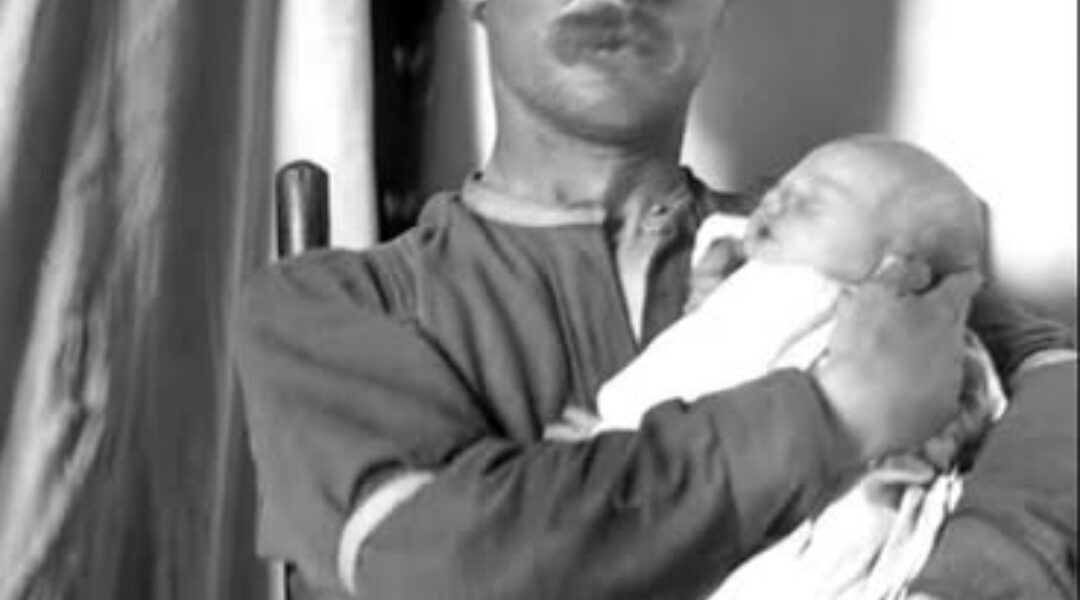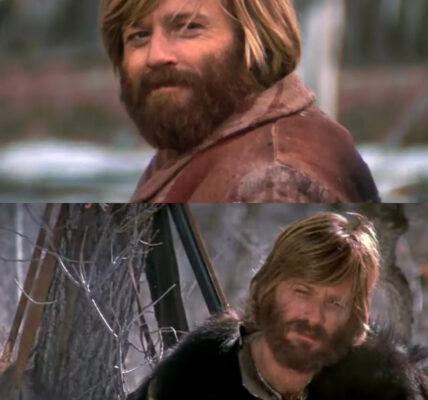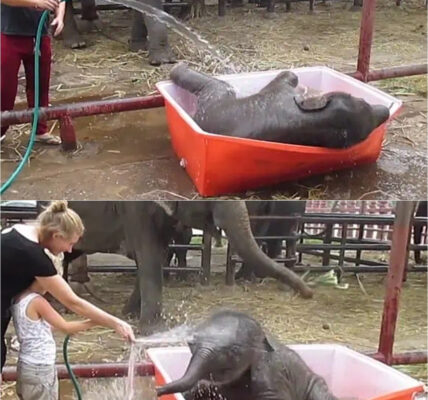
The morning his wife died, the world went still.
It had snowed through the night — the kind of snow that buries sound, softens everything, and leaves the world looking clean even when a heart is breaking. Samuel stood by the cabin window, his breath fogging the glass, watching the faint light of dawn push against the storm. Behind him, the silence was unbearable — the kind of silence that comes only after too much pain.
Just two days earlier, he’d been holding her hand as she brought their child into the world. Two days later, that same hand had gone still and cold. There had been no doctor, no help within reach. Only Samuel’s voice, hoarse from begging God to let her stay, and the thin, fragile cry of the newborn she’d left behind.
When the sun finally rose, Samuel carried his wife’s body outside. He dug her grave behind the cabin, his hands blistered and bleeding from the frozen earth. The wind whipped at his face, and he muttered to it like a madman — asking questions that no one could answer. When the shovel struck the last bit of dirt, he pressed his forehead against the wooden cross he’d carved and whispered, “I’ll take care of him. I promise.”
And then he went back inside to keep that promise.
The baby was crying — a small, trembling sound that filled the cabin like a heartbeat. Samuel, clumsy and raw, boiled goat’s milk on the fire, testing the warmth with his calloused fingers before feeding it to the child. He wrapped him in his wife’s old shawl, still smelling faintly of her, and sat there by the fire until the baby’s cries softened into sleep.
For a long time, Samuel didn’t weep. He couldn’t. Grief was a luxury he couldn’t afford — not when the child needed feeding, not when the goats needed milking, not when the woodpile was low and the snow kept falling.
He moved through each day like a man carrying two lives on his shoulders — one that had ended, and one that was only beginning.
When spring came, the thaw brought more work. The land had to be turned, the crops planted. Samuel built a sling from an old blanket, tying it across his chest to carry the baby while he plowed. He guided the mule with one hand and steadied the boy with the other, whispering softly over the creak of leather and the sigh of soil.
At night, after long days in the fields, he would sit by the fire and hum tunes his wife used to sing. The baby would fall asleep against his chest, and for a few quiet moments, the cabin didn’t feel so empty.
The neighbors said he wouldn’t make it through the year. “A man can’t raise a baby alone,” they’d mutter at the general store. “Not out there. Not after that.” But Samuel never came down to town to hear them. He had no use for doubt. His world was the ridge, the soil, and the small bundle that depended on him.
Days bled into months. Months into years.
The boy grew strong. He learned to walk by following his father between rows of wheat, stumbling after the rhythm of the plow. When he fell, Samuel didn’t rush to lift him — just smiled, told him to try again, and waited until he did. When the boy asked about his mother, Samuel would take him out to the grave and tell him stories — about her laughter, her cooking, how her voice could make a room glow even on the darkest night.
The winters were long, and the summers hard, but they endured. And little by little, the people in town stopped doubting. They began to talk about Samuel with something like reverence.
They said he was a man carved out of the ridge itself — rough, steadfast, and stubbornly alive. A man who had once plowed his fields with one hand and rocked a crying baby with the other.
By the time the boy was twelve, Samuel’s hair had turned white. His back was bent, and his hands carried the deep lines of work and weather. Yet when he smiled, there was still light in him — the same quiet strength that had kept them both alive.
The boy, tall and sure-footed now, took on the heavier work. Together, they harvested the fields and fixed the fences. Each evening, they’d sit outside the cabin, watching the sun drop behind the hills, the sky burning gold over the graveyard where love had once been buried but never forgotten.
As the years passed, Samuel’s story spread beyond the ridge. Folks in town told it like a legend — the tale of a widower who had turned heartbreak into purpose, who had faced the wilderness and loneliness with nothing but his hands, his faith, and the tiny heartbeat of his son to guide him.
And when Samuel grew too old to plow, the boy — now a man — took his father’s place behind the mule. He worked the same soil, under the same wide sky, with the same quiet endurance.
One evening, as they sat watching the fields sway under the wind, the son turned to him and said softly, “Pa, how did you do it? How did you keep going when she was gone?”
Samuel looked at him for a long moment. The lines around his eyes deepened as he smiled. “You just keep waking up,” he said. “You keep working. You hold on to what’s left — and you love what’s in front of you.”
That was all he ever said about it.
When Samuel’s time finally came, they buried him beside his wife under the same oak tree he’d planted years before. The son stood alone by the graves, his hands rough and strong, just like his father’s had been. The wind swept softly across the ridge, carrying the scent of soil and rain — the same rhythm that had carried their lives from beginning to end.
And in that moment, it was clear: Samuel had never truly been alone.
His love — quiet, steadfast, and enduring — had built something stronger than stone. A legacy of courage, of tenderness, of survival.
The neighbors would still tell his story for years to come. Not of a man who conquered or fought, but of one who simply refused to give up. A man who plowed with one hand, rocked a child with the other, and in doing so, became a legend of love that time could never bury.




